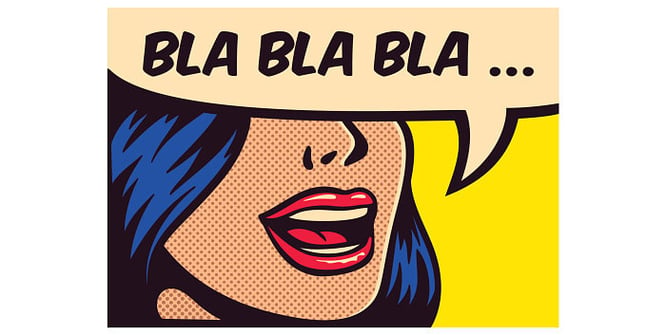We love sales. But we hate feeling “sold to.” Everybody does. Though, if you talk to any sales person, they’ll tell you they’re not like that. Alas, they usually are.
All of us are. We think we’re smooth and great at building relationships and win-wins. But when we ask your clients if they ever feel “sold to” by you, they say, yes. Here’s why:

When we are not genuinely curious about our clients, they can smell it from miles away. It could be as blatant as ignoring a client’s sidebar story to get back to our agenda in the “interest of time.” Or, as subtle as blowing by a non-verbal cue.
A stellar example we recently heard is this: A senior consultant at a major research firm recounted being in a meeting with his sales colleague and a customer’s senior officer. The salesperson was speaking to the services they provide, when the consultant slowed the conversation and asked the customer what she cared about.
She said, “Governance.” Then the sales person said, “We just have 10 minutes left, let’s wrap on our next steps.” The customer was telling them a new opportunity she cared about and the sales person left her hanging.
Whether you fall on the subtle or blatant end of the not-so-curious scale, there’s a couple of good reasons why we’re not curious:
- The first is simply because we’re good at what we do. We’re seasoned professionals, and that means we’ve been in too many rodeos. We know the tell-tale signals indicating our clients could benefit from our solutions, and we are very efficient at getting them there. Expertise and habituation hinder curiosity.
- The second is that we’re under enormous pressure! We don’t get commissions based on high-quality listening, do we? We get commissions when we close the deal. We don’t hug it out to get into President’s Circle; we blow our quota away. So, self-induced pressure to perform also hinders our curiosity.
Still, this notion of being incurious and salesy feels terrible; nobody wants to admit this about themselves. So, here’s the solution. It’s something you can do immediately and in any client interaction.
The Four Prompts of Curiosity
We want you to pay attention to—and talk with your clients about – four things whenever you notice them. We guarantee your conversations will feel more authentic for you and your client, that your client will feel heard (and less sold), and that you’ll discover even more opportunity.
- Surprises – In almost every interaction you have with your client, they’ll say or do something unexpected. Our tendency is to blow right past this on our way to Close-ville. Instead, tell your client what surprised you and ask them to explain.
- Hacks – Everybody hacks. We’re all creative problem solvers and we find little ways to change stuff in our lives to make it better. And then we forget about it because our hack becomes our new normal. Salespeople are ideally positioned – as outside partners – to see and talk about these.
- What people care about – Too often, we see people ignore emotion. Maybe we’re uncomfortable, or we just want to “get back to business.” People care about their work. Even frustration is a signal that people want something different or better. Emotion = $.
- Inconsistencies – All of us are smack-talkers at some point. The things we say aren’t always what we do. Or, one department will say one thing and another group has a different view. Our job in sales is to engage them with these and enroll their help in figuring out which way to go.
Kick-butt Curiosity
One account executive we worked with was struggling to break into a small retail account—Starbucks. We suggested he go to a store and talk with the store manager – and practice being curious. After chatting for a bit, he asked her, “What’s the bane of your existence in your work here?” She said something surprising: “the Milk Binder.”
He asked her to explain this, and her frustration as she described the binder became palpable. “Could you show me the binder?” She was only to happy to drop it on the counter and flip through page after page describing different varieties of milk that had to be ordered, maintained at temperature, tracked and reported. The company relied on a clunky, laminated hack. The AE zipped an email off to an executive suggesting simply, “I hear the milk binder could use some innovation.” He landed a meeting.
If we’re ever going to be great listeners, we need help with our curiosity. Our customers are constantly trying to show and tell us what’s important, and we miss a surprising amount of this while leaving our clients feeling sold to. These four prompts are specific things that will deepen your conversations and your relationships into the authentic and profitable partnerships.
AUTHOR BIO
Ashley Welch and Justin Jones are the co-founders of Somersault Innovation (www.somersaultinnovation.com) – a Design Thinking consulting firm providing a unique approach to sales development. They also are the authors of "Naked Sales: How Design Thinking Reveals Customer Motives and Drives Revenue."
